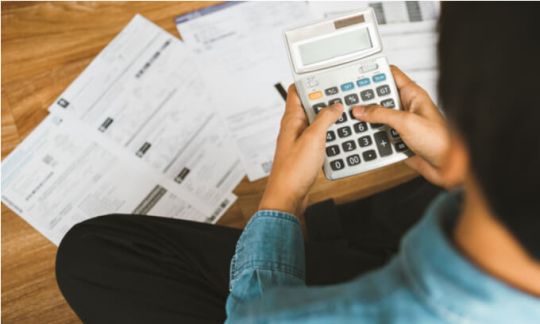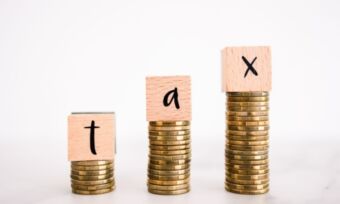Can you legally access your super early?
Your super is meant to be used only when you retire, but there are special cases in which you may be able to access your funds early – what are some common loopholes to access super?

Your super is meant to be used only when you retire, but there are special cases in which you may be able to access your funds early – what are some common loopholes to access super?
If times are hard and you’re financially stretched, you may be able to unlock super and gain access to your funds as an early release, but the conditions of release are strictly limited.
How can I access my super early?
The conditions for early release of superannuation savings generally fall into two categories: severe financial hardship, such as the bank threatening to sell your house, and compassionate grounds, such as to pay for a funeral, medical expenses or palliative care.
What you can’t do, though, is consider one of these ‘loopholes to access super’ as a means to access your super savings early to make a purchase, so if you’ve found yourself wondering “can I access my super to buy a car or caravan?”, the answer will likely be no.
Likewise, you cannot use early release of super for a house deposit, or access super to pay a lump sum into your mortgage. You may, however, be able to make voluntary contributions to your super via the First Home Super Saver Scheme (FHSSS) to assist with a deposit.
In some cases you may need to prove you have no other means of paying for permitted expenses other than through early access to your super. The amount you can withdraw may also be limited to what you reasonably need to meet unpaid expenses.
If you’re in need and wondering “what can I use my super for?”, here’s an overview of what can and can’t be done, according to the Australian Tax Office (ATO) and Services Australia (SA).
1. Losing your home
Yes: If you need mortgage assistance you may be able to access some of your super early if:
- the property under threat is your usual place of residence
- you are responsible for the mortgage or rates repayments
- your bank or council is threatening to repossess or sell your home due to arrears on your mortgage or council rates.
No: You will have problems if:
- you don’t own the property, for example, if you’re renting
- you are in arrears on your mortgage or council rates but your bank or council is not threatening to repossess or sell your home
- you want the money for an investment property.
2. Severe financial hardship
Yes: If you’re facing financial hardship you may be able to access some of your super early if:
- you’ve received government income support payments continuously for 26 weeks and can’t meet reasonable and immediate family living expenses.
No: You will have problems if:
- you need less than $1,000 or more than $10,000 (the minimum and maximum amounts)
- you plan on withdrawing more than once in a 12-month period (not allowed).
3. Terminal medical condition
Yes: If you have a terminal medical condition you may be able to access some or all of your super early if your illness or injury is likely to result in your death within 24 months and:
- two medical specialists certify this is the case
- one of those doctors is a specialist in the area related to your illness or injury.
The ATO says if your fund doesn’t allow you any early access due to a terminal medical condition, you may be able to move your super to a different fund. Check first though to make sure you don’t lose any benefits or insurance you still need.
4. Palliative care
Yes: If you need to pay for palliative care for you or a dependent you may be able to access some of your super early if:
- you or your dependent has a terminal illness
- you or your dependent need assistance paying palliative care expenses.
5. Temporary incapacity
Yes: If you have a physical or mental medical condition you may be able to access some of your super early if:
- you are temporarily unable to work
- you need to work less hours.
6. Permanent incapacity
Yes: If you have a physical or mental medical condition you may be able to access some or all of your super early if:
- it’s likely to stop you from ever working again in a job you were qualified to do by education, training or experience
- at least two medical practitioners certify this is the case.
7. Home or car modifications
Yes: There are other compassionate grounds on which you may be able to access some of your super early, including if:
- you or your dependent has a severe disability and you need to modify your home or car to suit
- you need to buy disability aids to accommodate a severe disability.
No: You will have problems if:
- you or your dependent’s medical condition has not been diagnosed as a severe disability by a registered medical practitioner
- you want to modify a dependent’s home that is not your principal place of residence.
8. Funeral expenses
Yes: Again, on compassionate grounds, you may be able to access some of your super early if:
- a dependent has passed away
- you need help paying funeral or burial expenses.
No: You will have problems if:
- you are applying for funeral expenses for someone who is not a dependent
- your dependent’s funeral has taken place and had been paid for
- you are applying for venue hire or catering for a wake.
9. Super balance of less than $200
Yes: You may be able to access all your super early if:
- your employment is terminated and the balance of your super is less than $200
- you have found a lost super account with a balance less than $200.
The ATO says you should contact your super fund to request access. No tax is payable on balances of less than $200.
How do I get early access to my super?
If you’re applying for early access to your super for compassionate reasons, you can do so via the ATO’s website or call 13 10 20 (8am–6pm, Monday–Friday, or 10am–2pm on Saturdays AEDT) to ask for a paper application form.
For all other applications you should contact your super fund.
How will I be taxed if I get early access to my super?
The tax implications of accessing your super early vary depending on your circumstances and the reasons you are applying for the funds.
Your super fund should be the first point of contact for more information. They will tell you what you need to know about early release of any funds and the associated fees or tax liabilities.
Generally though, the ATO says if you apply for early access to your super on compassionate grounds because you have a terminal illness, your funds will be paid as a lump sum and tax-free if withdrawn within 24 months of medical certification.
If you have a permanent incapacity you can choose to receive your super funds early as either a lump sum or as regular payments (income stream). How you will be taxed depends on your own situation. The ATO says you may be eligible for concessional tax treatment if your permanent incapacity is certified by at least two medical practitioners.
If you get early access to your super due to a temporary incapacity the funds will typically be paid in regular payments over the time you are unable to work. This will be taxed as a normal income stream. There are no special tax rates for this.
In the case of severe financial hardship, the maximum you can apply for is $10,000 and you can only make one withdrawal in any 12 month period. The amount you will be taxed depends on your own circumstances.
What to consider if I get early access to my super?
Withdrawing any amount of your super early will likely have an impact on the amount you will have available for retirement. That could have an impact on your plans for retirement.
You might want to consider seeking some independent professional financial advice before doing anything, and talk through options with your own super provider.
Depending on your circumstances, you might want to consider making some voluntary contributions to your super later on, should things change.
The ATO warns against some dodgy schemes that encourage you to get early access to your super for reasons other than those allowed through financial hardship or compassionate grounds. For example, they may try to persuade you to get access to your super to transfer to a self-managed super fund.
The ATO says these schemes are illegal and heavy penalties may apply if you get involved.
If you have any concerns or are worried you have been approached by someone who is encouraging you to seek illegal access to your super fund, then contact the ATO by phone 13 10 20 or email Super-IER@ato.gov.au.
Cover image source: Kmpzzz/Shutterstock.com
This article was reviewed by our Editor-in-Chief Nina Rinella before it was updated, as part of our fact-checking process.

Alasdair Duncan is Canstar's Content Editor, specialising in home loans, property and lifestyle topics. He has written more than 500 articles for Canstar and his work is widely referenced by other publishers and media outlets, including Yahoo Finance, The New Daily, The Motley Fool and Sky News. He has featured as a guest author for property website homely.com.au.
In his more than 15 years working in the media, Alasdair has written for a broad range of publications. Before joining Canstar, he was a News Editor at Pedestrian.TV, part of Australia’s leading youth media group. His work has also appeared on ABC News, Junkee, Rolling Stone, Kotaku, the Sydney Star Observer and The Brag. He has a Bachelor of Laws (Honours) and a Bachelor of Arts with a major in Journalism from the University of Queensland.
When he is not writing about finance for Canstar, Alasdair can probably be found at the beach with his two dogs or listening to podcasts about pop music. You can follow Alasdair on LinkedIn.
Try our Superannuation comparison tool to instantly compare Canstar expert rated options.






